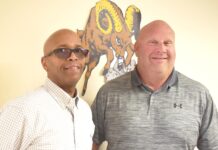
By Murray Siegel
Throughout the year, results gleaned from education research are released in an attempt to communicate what has been learned about improving student accomplishment. Unfortunately, unless you subscribe to an educational research journal, these results are most likely unknown to you.
A study in New York (“The Acquisition of Gender Stereotypes about Intellectual Ability: Intersections with Race”) involving more than 200 kindergarten and first-grade students revealed these young children already had biased beliefs about gender and academic excellence. These primary students “know” males are more brilliant than females. Think how this belief affects the confidence of young females to tackle academic challenges.
Perhaps an outcome of this early-onset bias is that although women earn more than half of all undergraduate and graduate degrees, and that girls outperform boys in STEM (Science, Technology, Engineering, Mathematics) subjects, far fewer women than men pursue STEM careers.
Another study demonstrated a bias against African American elementary school students. Fewer black students who had high test scores were assigned to gifted programs than their white equals. Only if the teacher was black was there an equivalence in these recommendations.
Another study revealed a strong relationship between parent and teacher beliefs and student academic performance, especially for girls. It was also revealed some teachers are successfully utilizing artificial intelligence to determine the best method for teaching specific students.
As a nation, we are concerned about mathematical accomplishment. Research discovered that math scores improve for low-confidence students when these students silently repeat to themselves that they will make their best effort. Furthermore, teachers are significantly more effective when the teacher understands the student’s cultural background.
A substantial portion of Americans seem to be proud they were never successful in mathematics. They believe their personal accomplishments occurred without a mastery of math. You will find few who are proud that they never mastered the ability to read.
Students, and some parents, ask, “Why learn math?” or “When will we ever use this?” A recent study found a meaningful positive correlation between mathematical ability and health status.
Math-y folks tend to be healthier, but why? A study indicated that individuals who were mathematically confident were more likely to evaluate health risks using data as opposed to making decisions based on emotion. Furthermore, mathematically able adults are wiser consumers of numerical medical results.
It appears that children will benefit as adults from being properly inspired by parents and teachers to do their best and become proficient learners of mathematics.
Murray Siegel has a PhD in MathEd and 42 years of teaching experience. He and his wife Sharon are volunteer teachers of advanced math classes at Butterfield Elementary School.
This column appears in the February issue of InMaricopa.












![Alleged car thief released without charges Phoenix police stop a stolen vehicle on April 20, 2024. [Facebook]](https://www.inmaricopa.com/wp-content/uploads/2024/04/IMG_5040-218x150.jpg)

![3 things to know about the new city budget Vice Mayor Amber Liermann and Councilmember Eric Goettl review parts of the city's 2024 operational budget with Mayor Nancy Smith on April 24, 2024. [Monica D. Spencer]](https://www.inmaricopa.com/wp-content/uploads/2024/04/spencer-042424-preliminary-budget-meeting-web-100x70.jpg)


